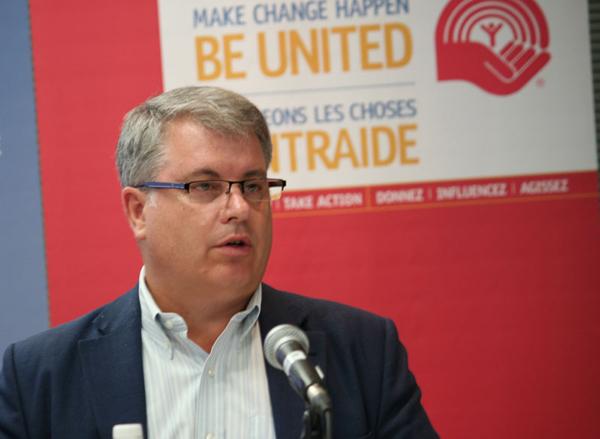Gay groups are conspicuously absent from the list of recipients of cash from United Way Ottawa. In a press briefing on June 8, the Community Services Cabinet spoke to their new funding process.
In June 2010, United Way changed its priority goals for community funding away from projects that focus on specific demographic groups, such as sex education programs for youth, toward research-based projects where results are more easily measured. The new direction and narrow focus alarmed many health and service community organizations, which feared that many community programs would fall by the wayside.
In releasing the list, Jeffrey Dale, chair of the Community Investment Committee, acknowledged the organizations that did not meet the new requirements.
“By far the most difficult part of this process was acting on the funding recommendations of our volunteer reviewers, which resulted in reduced funding to a number of programs which we have supported in the past,” he said.
Dale said United Way had approximately $6 million in available funds, but that 225 proposals were received and evaluated, with the amount for funding requests totalling $18 million.
The funds were allocated to 116 programs run by 71 agencies — and 24 new programs were added to the list. United Way will also fund 43 programs in another focus area called Turning Lives Around; the first call for proposal for these programs will be in 2012.
Carole Gagnon, vice-president of community services, said that because of the new proposal process, United Way set aside $2.3 million to assist organizations they had worked with historically but who were not funded this year.
Planned Parenthood of Ottawa (PPO) received $13,298 for transition purposes. United Way Ottawa had funded PPO’s community education program for young people since 1975. This year, the agency’s funding bid was denied.
Gagnon said that if United Way were not committed to the transition funds, many more organizations could have been funded, including queer agencies that scored well in the evaluation process.
“A number of them [queer agencies] are very well positioned — based on what they proposed this year and based on how they were ranked — to receive funding from United Way in the future should they score equally as well as they did in this round,” said Gagnon.
Gagnon added that she is open and willing to meet with the executive directors of queer organizations in an open community meeting to talk about the funding process. Gagnon also stressed that agencies are able to get direct funding through designations.
This year, designated funds — in cases where donors specified an organization to receive their donation — amounted to $13.2 million.
Michael Allen, president and CEO of United Way Ottawa, reiterated the importance of designated funds.
“We would encourage agencies that were not funded or fully funded this year to work with us to try and reduce that gap between what we’ve raised and what we need and to elevate their own profiles about the great work they’re doing in the community and to help them increase their designations,” he said. “We are in the business of increasing philanthropy; we want to help these organizations whether or not we were able to fund them through the limitations in this particular program.”

 Why you can trust Xtra
Why you can trust Xtra


